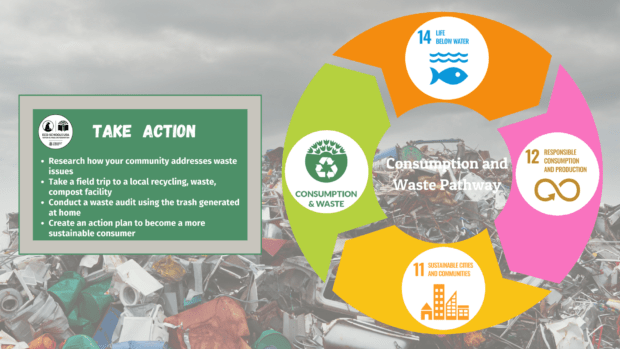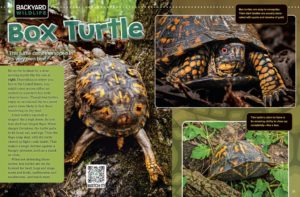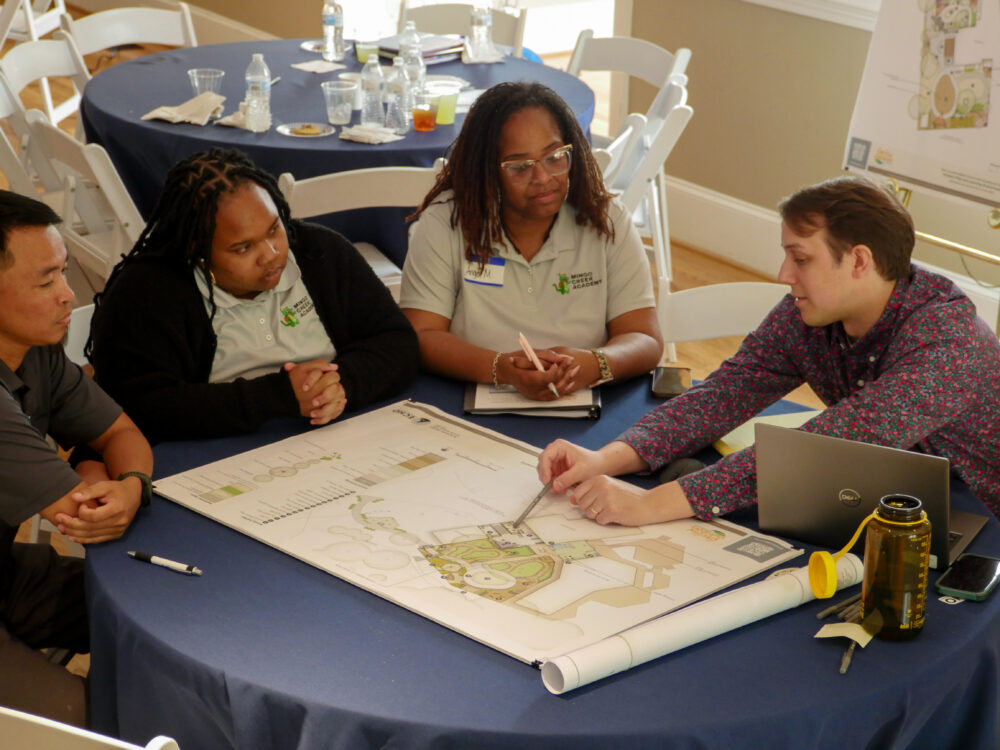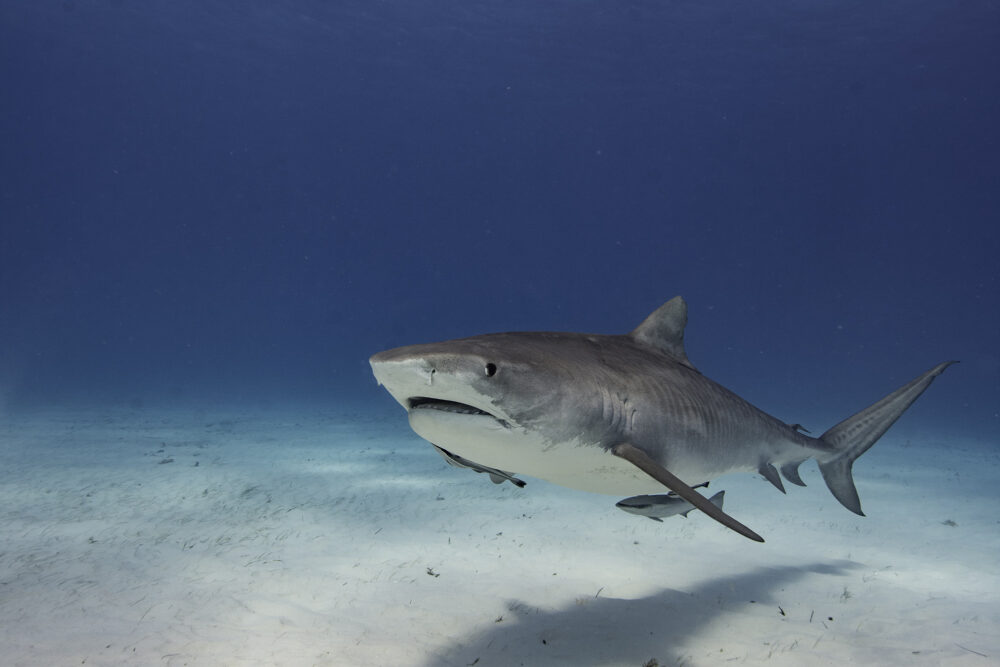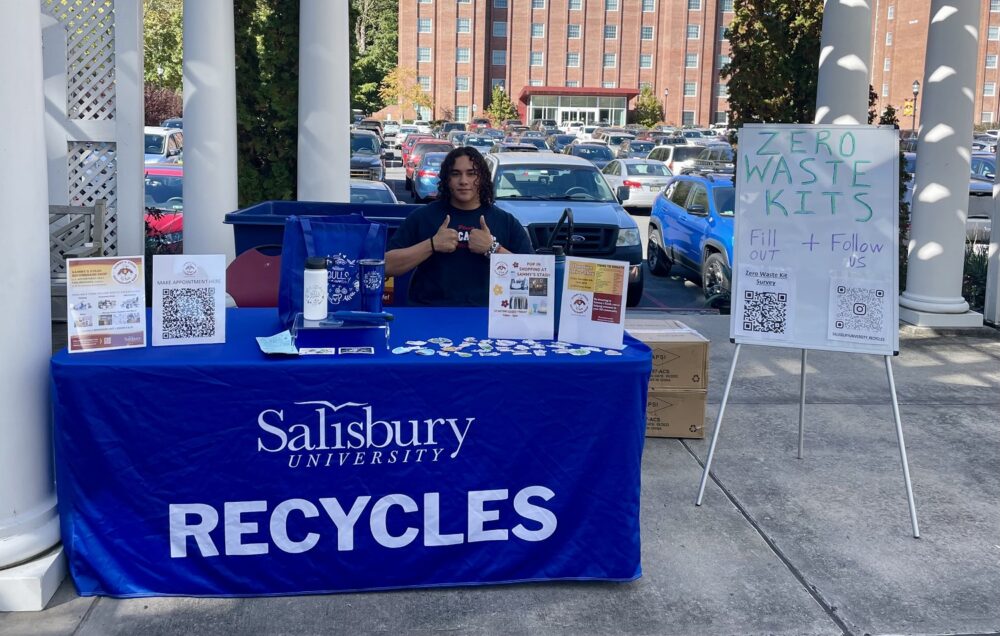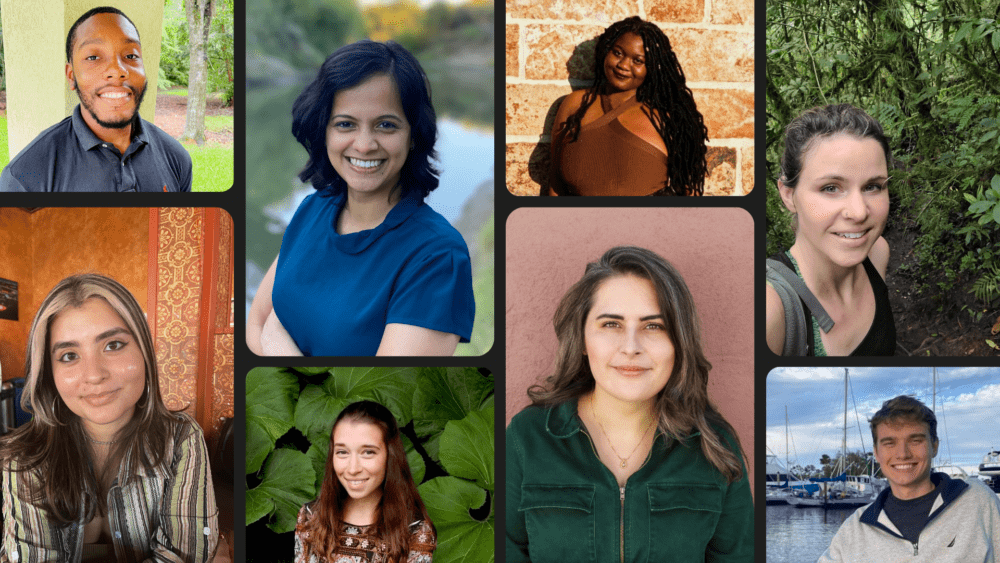We have much more to do and your continued support is needed now more than ever.
Education Newsletter November 2020
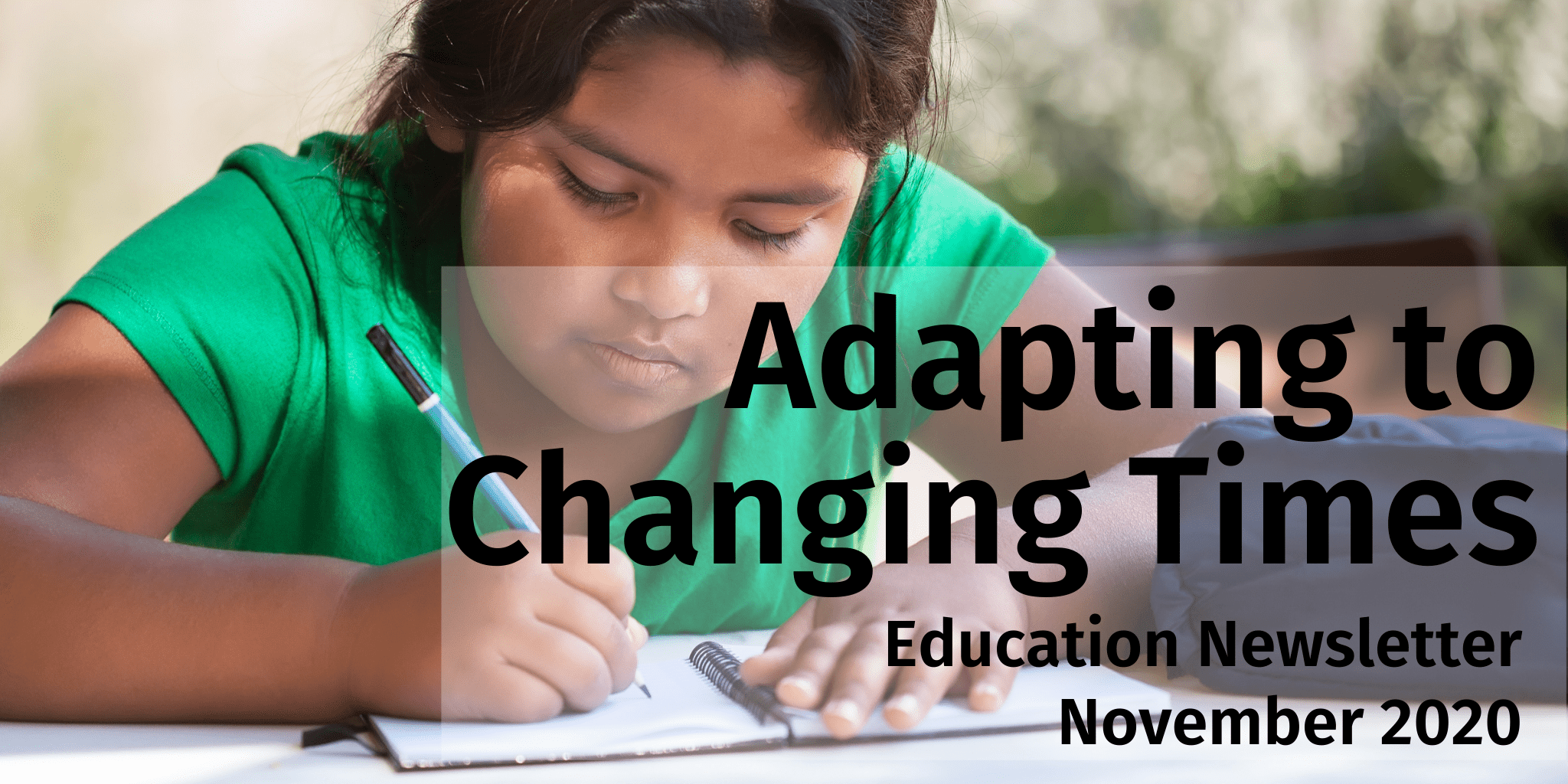
As temperatures fall around the country, we observe habitats flowing deeper into fall, and preparing for winter. Wildlife are busy employing their adaptations as the winter solstice approaches. Some wildlife are storing extra food, while others are growing a thicker coat of fur. Still, others are migrating, preparing dens, or digging burrows. While we, too, are making preparations and adapting to the uncertain season ahead, we embrace hope for a better tomorrow because we are resilient, and we are better together.
Consumption & Waste Pathway
SDG 12, Target 12.5: By 2030, substantially reduce waste generation through prevention, reduction, recycling, and reuse
During the COVID-19 pandemic, many of us have experienced an unexpected increase in the amount of waste we generate daily. Several factors have contributed, including the need to rely on single-use and disposable containers and restrictions imposed on reusable bags across many locations. Now more than ever, it’s important to find teachable moments relating to consumption and waste whether kids are at home or in the classroom. Our Eco-Schools USA at Home Consumption and Waste Audit and Action Plan provides instructions for kids to complete a waste audit using trash collected at home.
After completing a simple audit, they are challenged to create an action plan, outlining specific steps they and their family can take. Or use data from an entire class to formulate an action plan. Browse the related grade-banded resources for ways to enhance the learning experience. Finally, explore the global connection between students’ actions at home and Sustainable Development Goal 12, Responsible Consumption and Production. Associated goals include Goal 11, Sustainable Cities and Communities, and Goal 14, Life Below Water.
November brings the opportunity to participate in America Recycles Day, an important initiative that promotes increased attention to recycling and waste reduction. According to Keep America Beautiful, the national recycling rate stands around 34%. Encourage students to join with the over 83,000 people who have taken the pledge to learn about recycling in their community, act to reduce & recycle, and share while encouraging others to take the #BeRecyled pledge.
Take Learning Outside
We recognize that one of the challenges of taking learning outside is the time required to plan engaging lessons suitable for an outdoor learning environment. Teachers have already been working tirelessly to adapt lessons to fit the needs of diverse student learning environments. This month we highlight some of the age-appropriate activities designed by the Eco-Schools USA team that encourage finding nature within reach, whether in a backyard, outside a window, on school grounds, or a neighborhood walk with a parent or guardian.
- Use What’s the Matter in Nature to explore basic concepts of matter while outside.
- Download the Bird Activity Guide and instruct students at home to make observations while looking out their window.
- The Eco-Schools USA at Home Audit & Action Plans for the Biodiversity and WOW (Watersheds, Oceans & Wetlands) pathways are well-suited for outdoor learning.
- This short video is an excellent introduction to biodiversity for younger students. And don’t forget that teachers and parents/guardians can apply to receive a certificate of recognition after completing the required pathway activities for Eco-Schools USA at Home.
Other simple ideas to enhance time in nature include grabbing the Ranger Rick® Nature Notebook pages before heading outside. Each notebook page provides some simple directions, a few probing questions, and space for creative input. Offer kids the option to design their own pages, using recycled materials gathered from around the house. They can jot down their own questions to investigate for outdoor exploration. Browse Nature Notebook topics like discovering what lives under rocks or exploring how icicles grow.
Discover New Resources
Have you heard about the Campus Race to Zero Waste? It’s a friendly competition open to students at colleges and universities that facilitates a path to zero waste on campus. Students participate in activities designed to reduce waste and increase recycling and composting while promoting the campus-wide reduction of single-use plastics.
Although the competition is designed for higher learning institutions, teachers can benefit from two relevant resources: What is the Plastic Pollution Problem? and Education and Awareness: How to Get the Word Out. To kick off the discussion, students of all ages can test their knowledge with the Campus Quiz: Plastic Pollution. Then brainstorm how to adapt solutions appropriate for K-12 schools. Help spread the word to get your favorite college to join the competition! #CR2ZW2021
Learn About Wildlife | Box Turtle
With everyone spending more time at home, use the opportunity to engage students in discussions about the wildlife found in their backyard, schoolyard, or neighborhood. Get started by using the What’s the Best Solution?, an extension activity found in the free November Ranger Rick Educator’s Guide.
Then have students read the Backyard Wildlife: Box Turtle story in Ranger Rick® magazine. Discuss how the box turtle uses its shell to defend against predators. Use the National Wildlife Federation Wildlife Guide to further research topics such as range, diet, and conversation efforts for the box turtle.
Green Opportunities
- Early Childhood Health and Outdoors, ECHO’s Resources, including How-To Guides and Nature Play at Home.
- Career Services Toolkit. Designed for career services professionals, guidance counselors, teachers, and other educational professionals to provide a framework and process for utilizing the National Wildlife Federation’s (NWF) EcoCareers resources in their classes, on their campuses, and in coordination with other academic and career development programming.
- Participate in GLOBE Measurement Campaigns. These campaigns are great for virtual and in-person learning experiences.
- Learning about air quality? Explore STEM Online Learning Videos from General Motors, including How to Measure Air Quality Near Your Home.
- New opportunity to learn more about marine ecosystems across the USA with the new National Marine Ecosystem Web Portal from NOAA.
- Even though Halloween has passed, teachers can still download a free waste & recycling lesson.
- The Kids Gardening 2021 Youth Garden Grant is accepting applications through 12/18/20
- Virtual course: Climate Change: Building climate science knowledge to enact local change (grades 9-12)
- Students can work on pathways like Energy, Biodiversity & Watersheds from outside the classroom with the Eco-Schools USA at Home resources.
- Get outside with Green Schoolyards America free Schoolyard Activity Guides.
- Engage high school students in conservation projects, policy & action by signing up for access to a free annual digital subscription to National Wildlife magazine.
- Find virtual classroom resources for at-home learning, including learning activities, educational videos, Ranger Rick Family Guides, & wildlife and pollinator craft activities.
- Sign up to video chat with a scientist from home with Skype a Scientist.
- The World’s Largest Lesson – Introducing the Sustainable Development Goals to young people.
Professional Development

